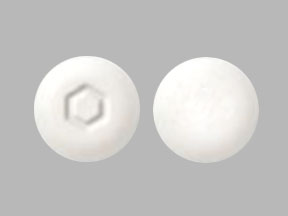Ragweed pollen allergen extract Interactions
There are 139 drugs known to interact with ragweed pollen allergen extract, along with 3 disease interactions, and 1 alcohol/food interaction. Of the total drug interactions, 44 are major, and 95 are moderate.
- View all 139 medications that may interact with ragweed pollen allergen extract
- View ragweed pollen allergen extract alcohol/food interactions (1)
- View ragweed pollen allergen extract disease interactions (3)
Most frequently checked interactions
View interaction reports for ragweed pollen allergen extract and the medicines listed below.
- Adderall (amphetamine / dextroamphetamine)
- Alcohol (contained in alcoholic beverages) (ethanol)
- Aleve (naproxen)
- Allegra (fexofenadine)
- Allegra Allergy (fexofenadine)
- Amytal Sodium (amobarbital)
- Anbesol (benzocaine topical)
- Augmentin (amoxicillin / clavulanate)
- Augmentin XR (amoxicillin / clavulanate)
- Azo-Cranberry (cranberry)
- Bactroban (mupirocin topical)
- Benadryl Original Strength Itch Stopping Cream (diphenhydramine / zinc acetate topical)
- Biofreeze (menthol topical)
- Centrum (multivitamin with minerals)
- Chloraseptic Sore Throat Spray (phenol topical)
- Claritin (loratadine)
- Cod Liver Oil (multivitamin)
- Coenzyme Q10 (ubiquinone)
- Culturelle Digestive Health (lactobacillus rhamnosus gg)
- Decadron (dexamethasone)
- Delestrogen (estradiol)
- Dextrose (glucose)
- Diflucan (fluconazole)
- Nasacort (triamcinolone nasal)
- Truvada (emtricitabine / tenofovir disoproxil)
- Vitamin B12 (cyanocobalamin)
- Vitamin B6 (pyridoxine)
- Vitamin C (ascorbic acid)
- Vitamin D3 (cholecalciferol)
- Zyrtec (cetirizine)
Ragweed pollen allergen extract alcohol/food interactions
There is 1 alcohol/food interaction with ragweed pollen allergen extract.
Ragweed pollen allergen extract disease interactions
There are 3 disease interactions with ragweed pollen allergen extract which include:
More about ragweed pollen allergen extract
- ragweed pollen allergen extract consumer information
- Compare alternatives
- Side effects
- Dosage information
- During pregnancy
- Drug class: allergenics
- En español
Related treatment guides
Drug Interaction Classification
| Highly clinically significant. Avoid combinations; the risk of the interaction outweighs the benefit. | |
| Moderately clinically significant. Usually avoid combinations; use it only under special circumstances. | |
| Minimally clinically significant. Minimize risk; assess risk and consider an alternative drug, take steps to circumvent the interaction risk and/or institute a monitoring plan. | |
| No interaction information available. |
See also:
Further information
Always consult your healthcare provider to ensure the information displayed on this page applies to your personal circumstances.


